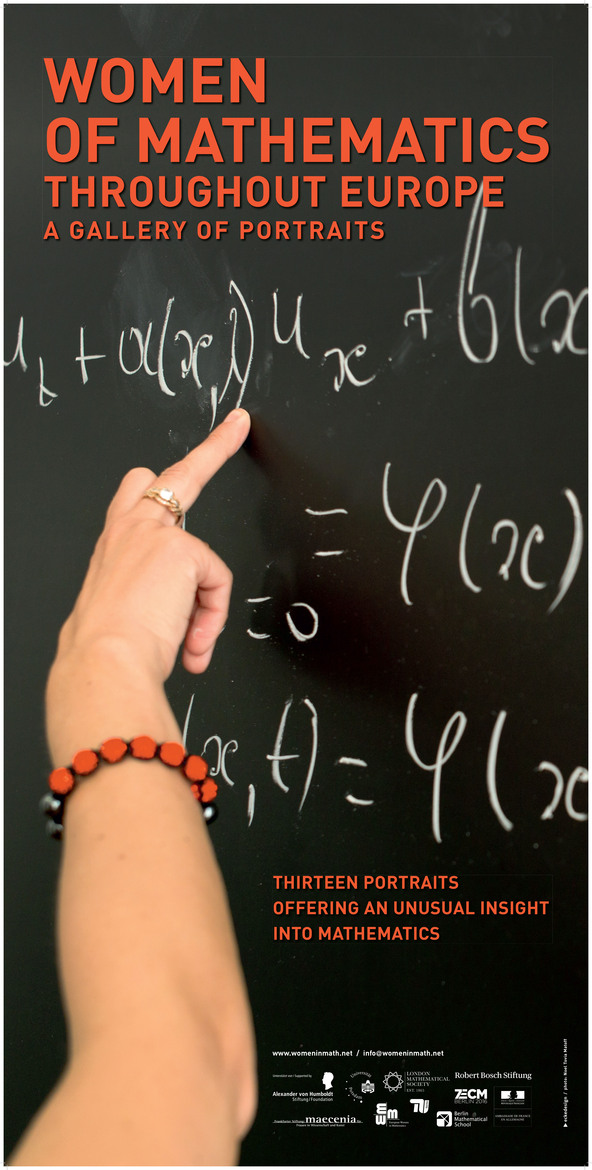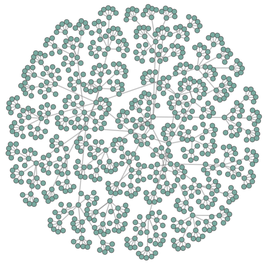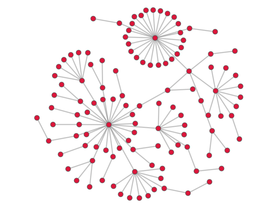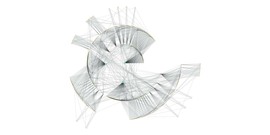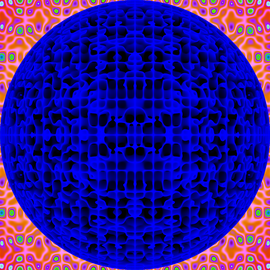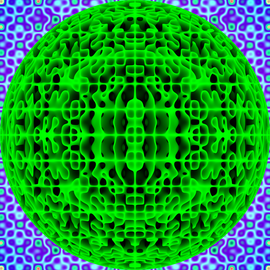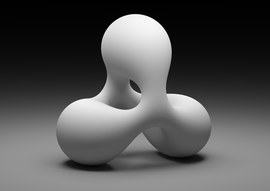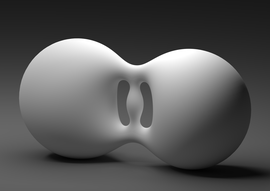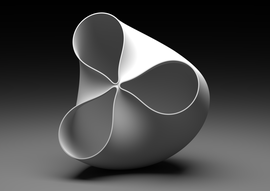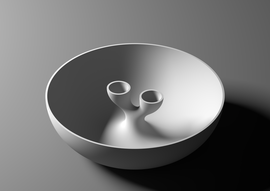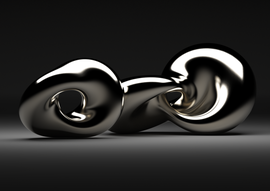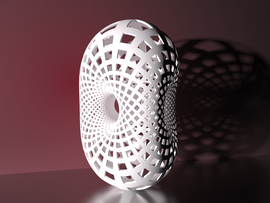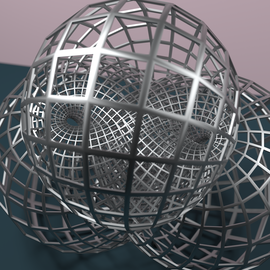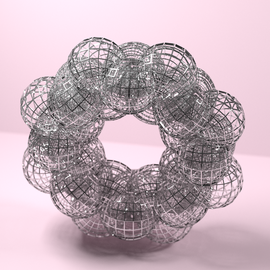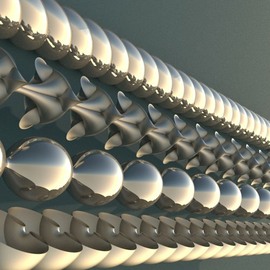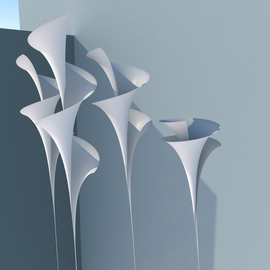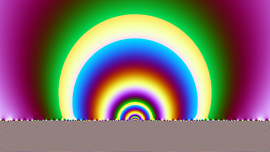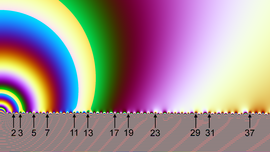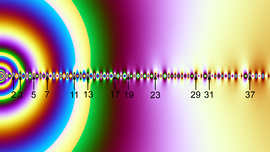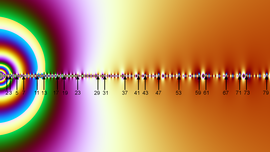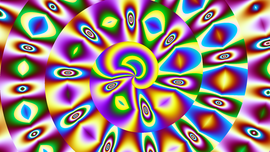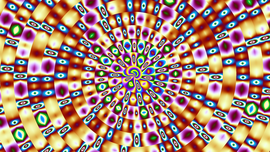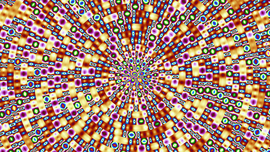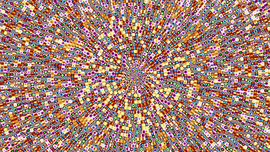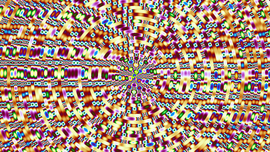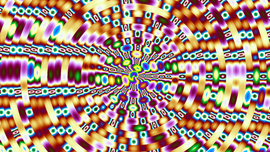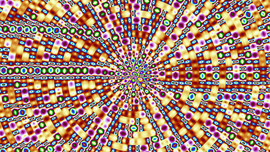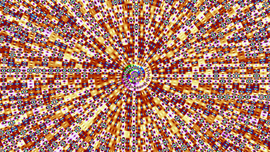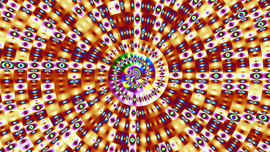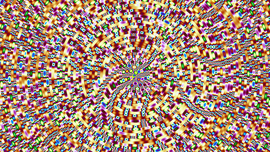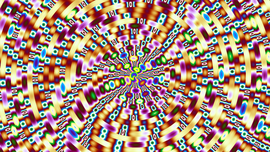Women of Mathematics - the exhibition panels
Find more details on the exhibition and all pictures in high resolution for download on its IMAGINARY page. Visit the Women of Mathematics exhibition website to learn more about the project and the curators.
Technical description for printing:
- Panel size: 594x1189 cm
- Scope: 14 panels
- Final format: 594,5 mm width x 1.189,00 mm height (subformat of DIN A0 with 840 x 1.189 mm)
- Bleed: 3,71 mm on each side (= 74,31 % from 5 mm)
- Resolution: 300dpi
- Color profile: ISO-coated-v2
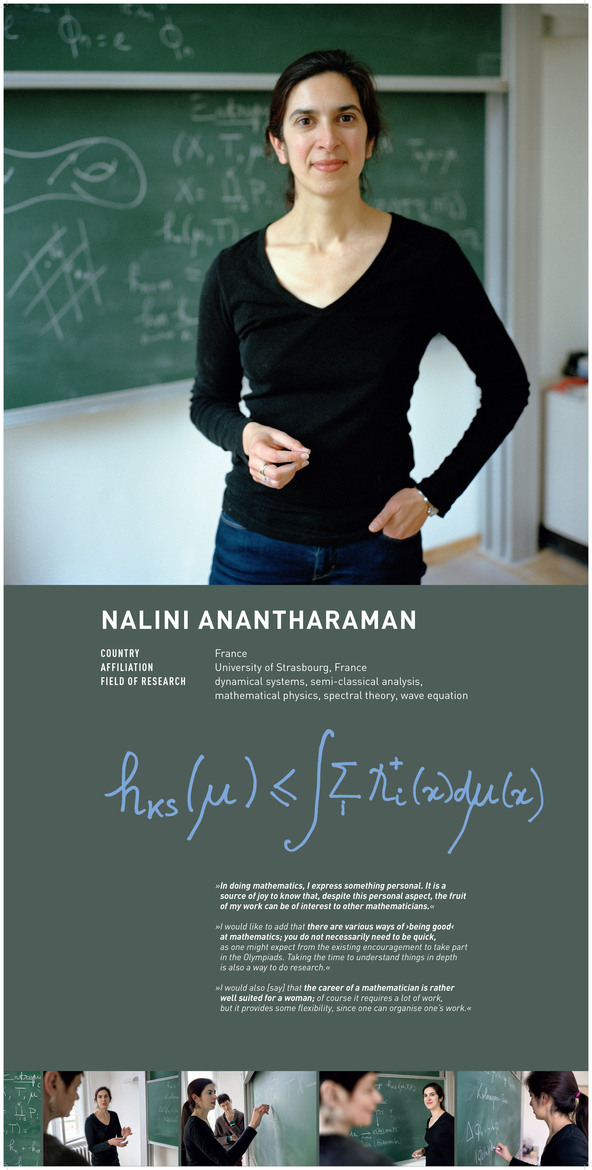
NALINI ANANTHARAMAN
NALINI ANANTHARAMAN
COUNTRY: France
AFFILIATION: University of Strasbourg, France
FIELD OF RESEARCH: dynamical systems, semi-classical analysis, mathematical physics, spectral theory, wave equation
»In doing mathematics, I express something personal. It is a source of joy to know that, despite this personal aspect, the fruit of my work can be of interest to other mathematicians.«
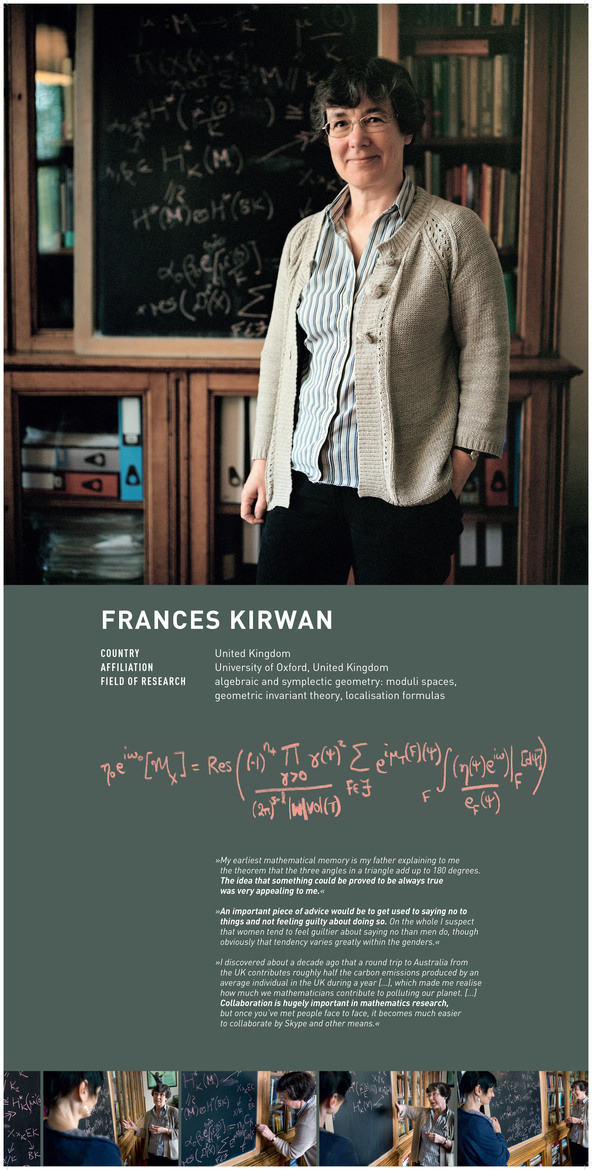
FRANCES KIRWAN
FRANCES KIRWAN
COUNTRY: United Kingdom
AFFILIATION: University of Oxford, United Kingdom
FIELD OF RESEARCH: algebraic and symplectic geometry: moduli spaces, geometric invariant theory, localisation formulas
» My earliest mathematical memory is my father explaining to me the theorem that the three angles in a triangle add up to 180 degrees. The idea that something could be proved to be always true was very appealing to me.«
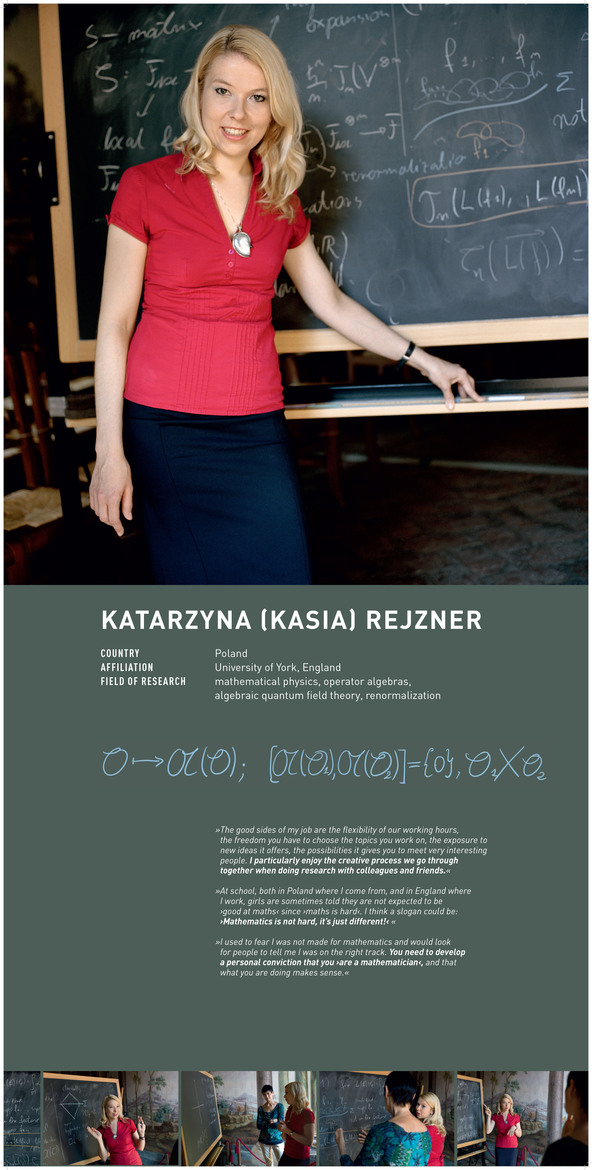
KATARZYNA (KASIA) REJZNER
KATARZYNA (KASIA) REJZNER
COUNTRY: Poland
AFFILIATION: University of York, England
FIELD OF RESEARCH: mathematical physics, operator algebras, algebraic quantum field theory, renormalization
» The good sides of my job are the flexibility of our working hours, the freedom you have to choose the topics you work on, the exposure to new ideas it offers, the possibilities it gives you to meet very interesting people. I particularly enjoy the creative process we go through together when doing research with colleagues and friends.«

IRINA KMIT
IRINA KMIT
COUNTRY: Ukraine
AFFILIATION: Humboldt University, Berlin, Germany
FIELD OF RESEARCH: analysis: hyperbolic differential equations, boundary value problems, bifurcation and stability analysis
» Solving mathematical problems gave me a unique sensation of freedom that did not depend on what happened around me. I actually think that this was the reason why mathematics was so strong in the Soviet Union; in mathematics, people were able to find the freedom they missed in real life.«
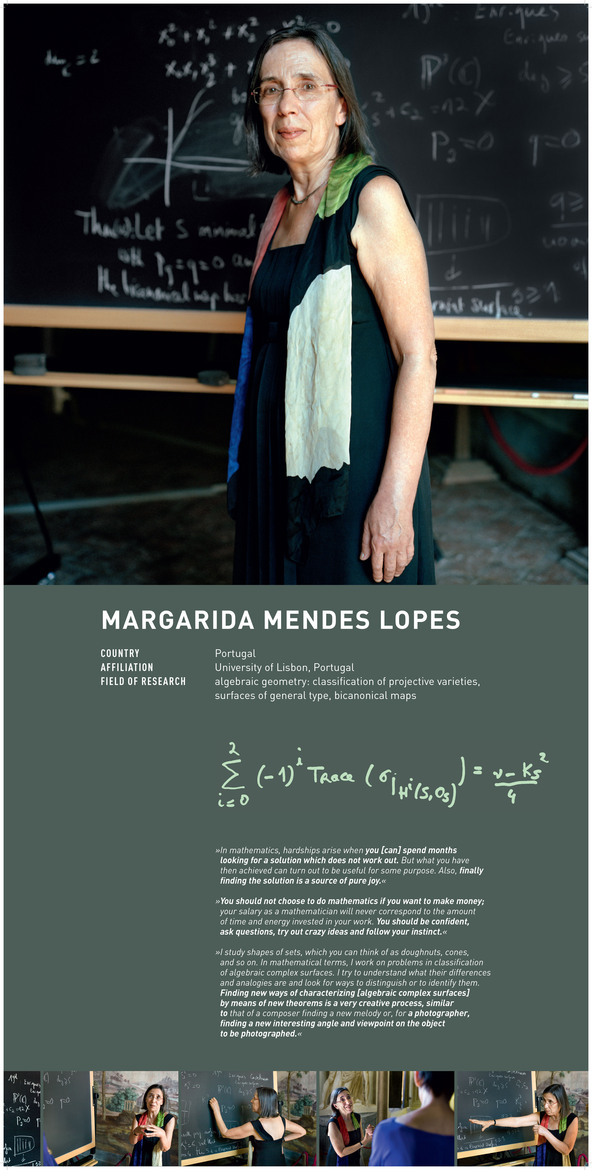
MARGARIDA MENDES LOPES
MARGARIDA MENDES LOPES
COUNTRY: Portugal
AFFILIATION: University of Lisbon, Portugal
FIELD OF RESEARCH: algebraic geometry: classification of projective varieties, surfaces of general type, bicanonical maps
» In mathematics, hardships arise when you [can] spend months looking for a solution which does not work out. But what you have then achieved can turn out to be useful for some purpose. Also, finally finding the solution is a source of pure joy.«
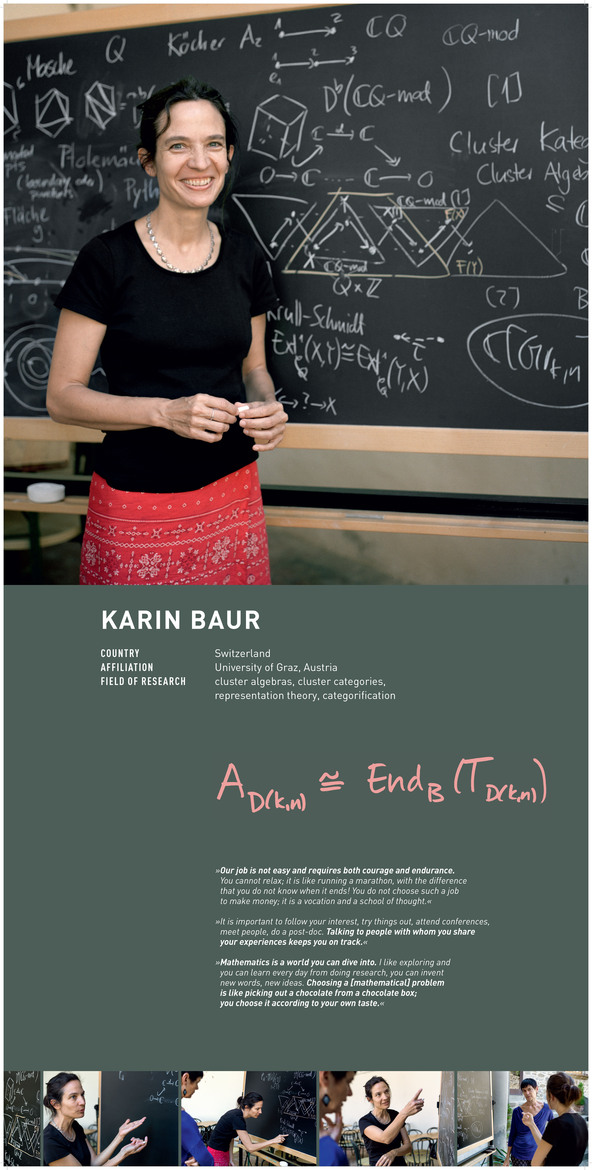
KARIN BAUR
KARIN BAUR
COUNTRY: Switzerland
AFFILIATION: University of Graz, Austria
FIELD OF RESEARCH: cluster algebras, cluster categories, representation theory, categorification
» Our job is not easy and requires both courage and endurance. You cannot relax; it is like running a marathon, with the difference that you do not know when it ends! You do not choose such a job to make money; it is a vocation and a school of thought.«
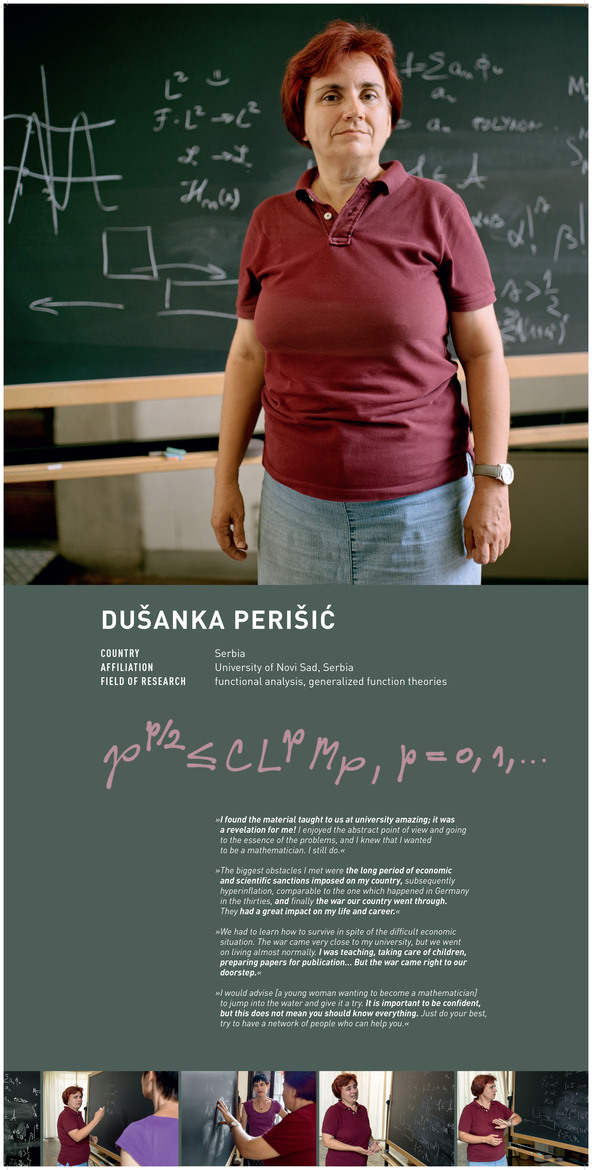
DUŠANKA PERIŠIC
DUŠANKA PERIŠIC
COUNTRY: Serbia
AFFILIATION: University of Novi Sad, Serbia
FIELD OF RESEARCH: functional analysis, generalized function theories
» I found the material taught to us at university amazing; it was a revelation for me! I enjoyed the abstract point of view and going to the essence of the problems, and I knew that I wanted to be a mathematician. I still do.«
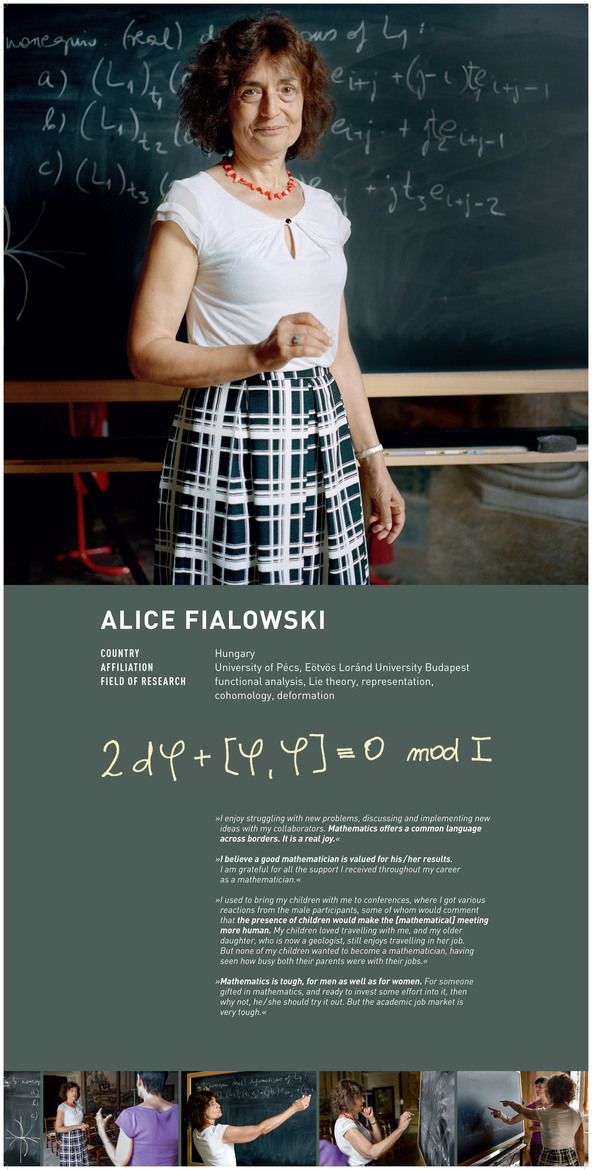
ALICE FIALOWSKI
ALICE FIALOWSKI
COUNTRY: Hungary
AFFILIATION: University of Pécs, Eötvös Loránd University Budapest
FIELD OF RESEARCH: functional analysis, Lie theory, representation, cohomology, deformation
» I enjoy struggling with new problems, discussing and implementing new ideas with my collaborators. Mathematics offers a common language across borders. It is a real joy.«
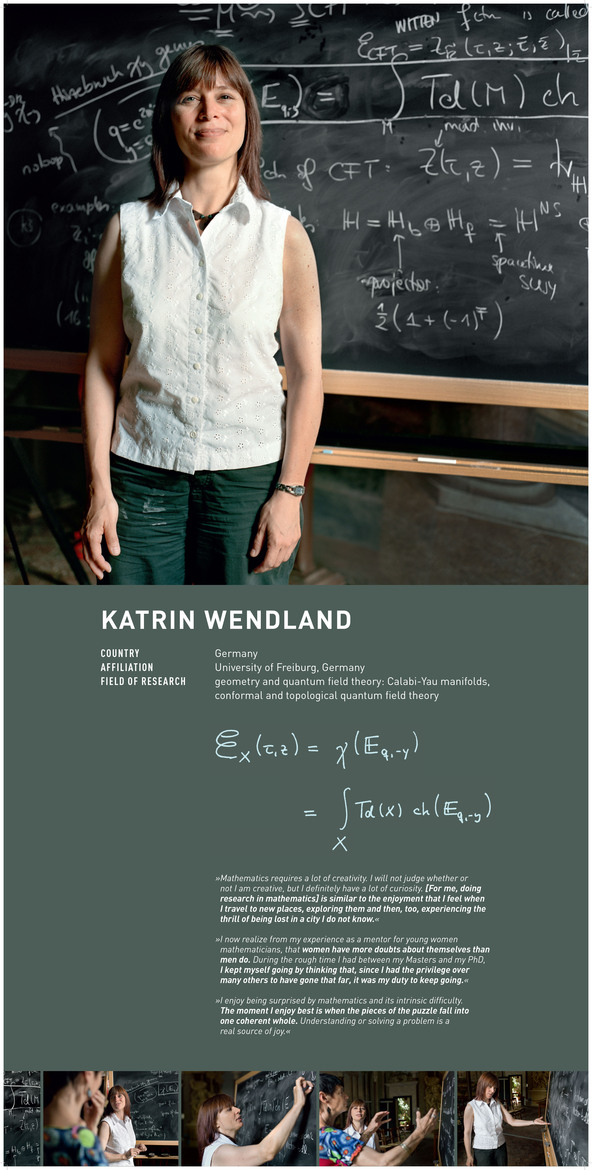
KATRIN WENDLAND
KATRIN WENDLAND
COUNTRY: Germany
AFFILIATION: University of Freiburg, Germany
FIELD OF RESEARCH: geometry and quantum field theory: Calabi-Yau manifolds, conformal and topological quantum field theory
» Mathematics requires a lot of creativity. I will not judge whether or not I am creative, but I definitely have a lot of curiosity. [For me, doing research in mathematics] is similar to the enjoyment that I feel when I travel to new places, exploring them and then, too, experiencing the thrill of being lost in a city I do not know.«
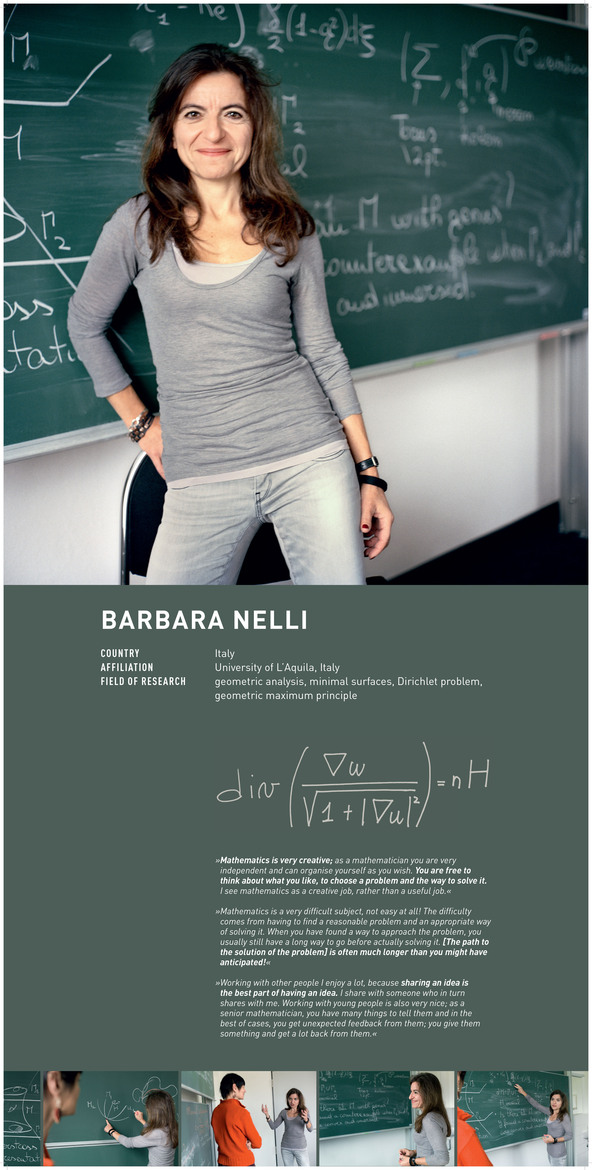
BARBARA NELLI
BARBARA NELLI
COUNTRY: Italy
AFFILIATION: University of L’Aquila, Italy
FIELD OF RESEARCH: geometric analysis, minimal surfaces, Dirichlet problem, geometric maximum principle
» Mathematics is very creative; as a mathematician you are very independent and can organise yourself as you wish. You are free to think about what you like, to choose a problem and the way to solve it. I see mathematics as a creative job, rather than a useful job.«
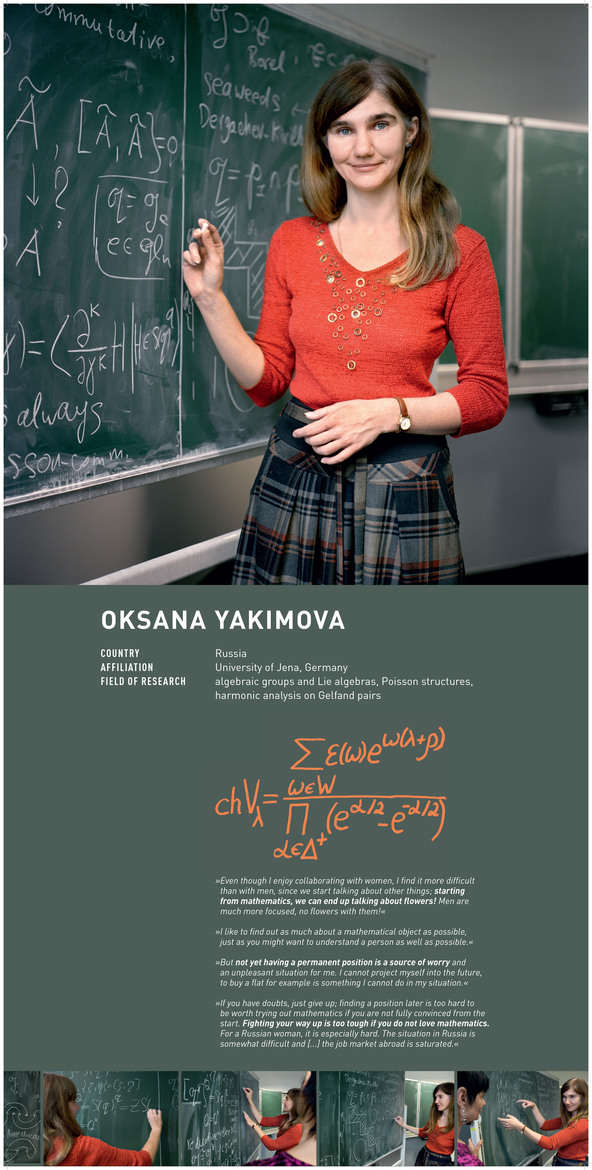
OKSANA YAKIMOVA
OKSANA YAKIMOVA
COUNTRY: Russia
AFFILIATION: University of Jena, Germany
FIELD OF RESEARCH: algebraic groups and Lie algebras, Poisson structures, harmonic analysis on Gelfand pairs
» Even though I enjoy collaborating with women, I find it more difficult than with men, since we start talking about other things; starting from mathematics, we can end up talking about flowers! Men are much more focused, no flowers with them!«
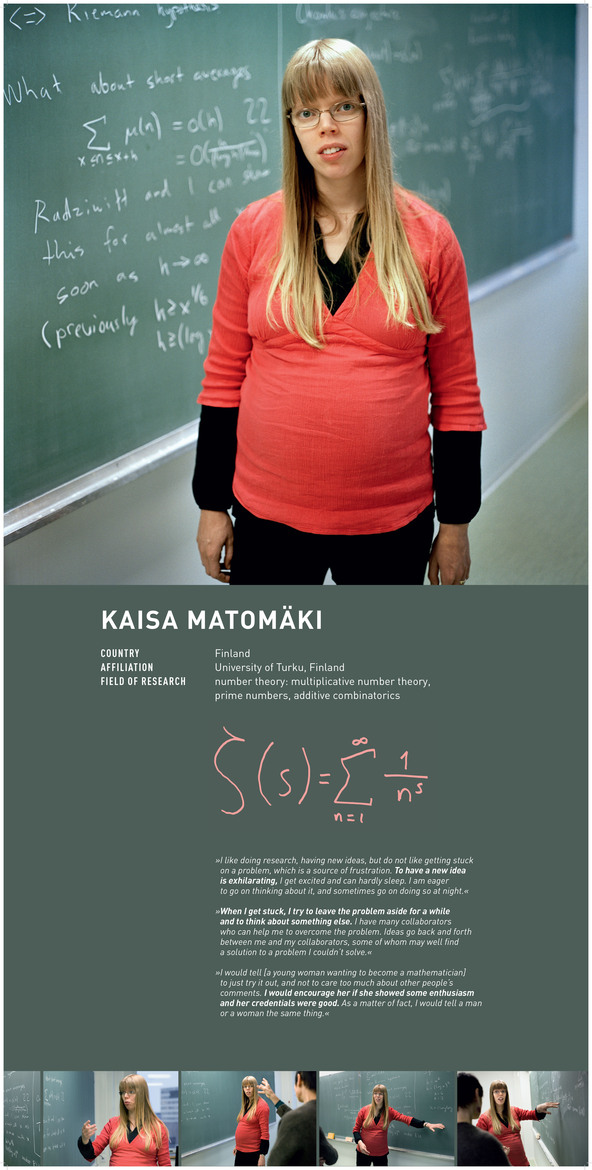
KAISA MATOMÄKI
KAISA MATOMÄKI
COUNTRY: Finland
AFFILIATION: University of Turku, Finland
FIELD OF RESEARCH: number theory: multiplicative number theory, prime numbers, additive combinatorics
» I like doing research, having new ideas, but do not like getting stuck on a problem, which is a source of frustration. To have a new idea is exhilarating, I get excited and can hardly sleep. I am eager to go on thinking about it, and sometimes go on doing so at night.«
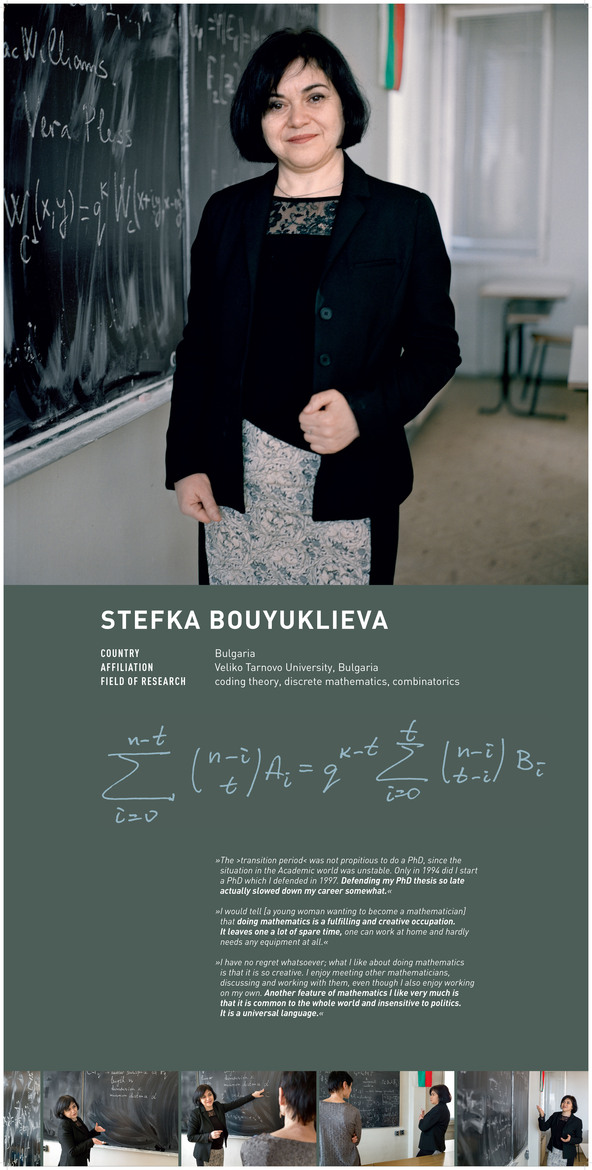
STEFKA BOUYUKLIEVA
STEFKA BOUYUKLIEVA
COUNTRY: Bulgaria
AFFILIATION: Veliko Tarnovo University, Bulgaria
FIELD OF RESEARCH: coding theory, discrete mathematics, combinatorics
» The >transition period< was not propitious to do a PhD, since the situation in the Academic world was unstable. Only in 1994 did I start a PhD which I defended in 1997. Defending my PhD thesis so late actually slowed down my career somewhat.«
